Strengthening the Measurement of ICT for Sustainable Development: 20 Years of Progress and New Frontiers
Partnership on Measuring ICT for Development
Session 158
Join us on 30 May, from 9h00 to 9h45, in room H2 for an engaging session at WSIS+20 Forum High-Level Event as the Partnership on Measuring Information and Communication Technologies (ICT) for Development celebrate two decades of collective effort in advancing the measurement agenda on ICT for sustainable development. Over the years, the Partnership has been instrumental in fostering collaboration among stakeholders to develop and refine core ICT indicators, and in providing capacity building activities to produce comparable and reliable data on the access to and use of ICT worldwide.
The session will highlight the remarkable achievements of the Partnership, showcasing how its initiatives have enabled evidence-based decision-making in diverse contexts. Partners will present the results of the stocktaking exercise on the core ICT indicators, highlighting progress across regions and sectors, and areas that need improvement.
The session will also address the pressing challenge of data availability in developing countries. Despite significant strides, data gaps persist, hindering effective monitoring and evaluation of ICT interventions. We will discuss innovative methods and partnerships to enhance data collection mechanisms, and capacity-building initiatives to produce reliable ICT data.
The session will identify emerging measurement areas critical for advancing the sustainable development agenda. From the rapidly evolving emerging technologies such as Artificial Intelligence to the urgent need to measure digital inclusivity and workforce, and health preparedness, the session will include future measurement areas, fostering resilience and inclusivity in the digital age.
Join us as we celebrate achievements, confront present challenges, and chart a course for a data-driven future where ICTs serve as catalysts for sustainable development and inclusive growth. Let us reaffirm our commitment to harnessing the power of data for a more just and sustainable world.
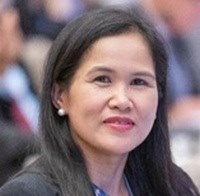
Ms. Esperanza Magpantay is the Senior Statistician of the ICT Data and Analytics division of the International Telecommunication Union (ITU), where she has been working since December 2000. She is responsible for the collection, harmonization, and dissemination of ICT statistics. Ms Magpantay is the ITU’s representative to the Partnership on Measuring ICT for Development and its Steering Committee, the UN Inter-agency Expert Group on SDG Indicators and the UN Committee of Experts on Big Data and Data Science for Official Statistics (UN-CEBD) where she currently leads the Task Team on mobile phone big data. She has represented ITU in international meetings including the UN Statistical Commission, the UN Committee for the Coordination of Statistical Activities (CCSA), the UN World Data Forum (UNWDF) and other international and regional events giving presentations and trainings on ICT statistics. Before joining ITU, she worked for 7 years at the International Labour Office (ILO) in Geneva as a statistical officer. Ms Magpantay holds a master’s degree in Business Analytics and Big Data from IE University in Madrid, Spain, and Bachelor of Science in Statistics from the University of the Philippines.
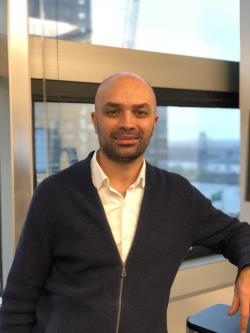
Deniz Susar is a Governance and Public Administration Officer, Digital Government Branch, Division for Public Institutions and Digital Government is a Governance and Public Administration Officer at the Division for Public Institutions and Digital Government of UNDESA. Deniz’s main work areas include digital government and preparation of the biannual UNDESA flagship publication ‘United Nations E-Government Survey'. As part of his current role, he also supports the Internet Governance Forum (IGF). HIs main research areas include e-government, open government, citizen engagement, internet governance, artificial intelligence and other frontier technologies and open government data. Deniz holds a Master Degree on International Political Economy and Development from Fordham University, New York, United States and a Computer Engineering degree from the Bosphorus University of Istanbul, Turkey.
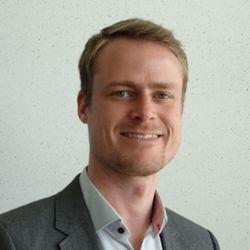
Thomas van Giffen is programme manager at the United Nations Conference on Trade and Development (UNCTAD). In 2008, Thomas joined UNCTAD's Division on Investment and Enterprise where he worked on various legal and policy projects related to foreign direct investment and multinational enterprises, including the World Investment Report and the World Investment Forum. In 2019, he joined the E-Commerce and Digital Economy Branch of the Division on Technology and Logistics and where he has been involved in the Digital Economy Reports and the organization of the eCommerce Weeks. Thomas currently is in charge of the Branch’s activities for the Pacific Digital Economy Programme, a joint initiative of UNCDF, UNDP and UNCTAD. During his time at UNCTAD, Thomas has built up extensive experience in the areas of research and analysis, management of international conferences and providing of capacity building and technical assistance to government officials and policymakers. Before joining UNCTAD, Thomas worked for SEO Economic Research, a socio-economic research institute linked to the University of Amsterdam, as well as for the department of Economic Affairs of the Permanent Mission of The Netherlands to the United Nations and WTO in Geneva on issues related to international trade and investment. He holds a Master’s degree of the University of Amsterdam in Law as well as in Political Science.
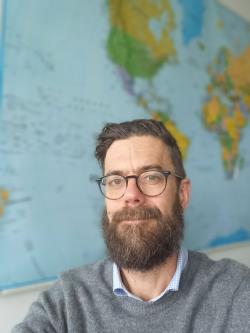
Michael Frosch joined the Statistical Standards and method unit at the Department of Statistics at ILO in 2016. He is the focal point for the implementation of the statistical standard on work relationships and is engaged in the work with developing statistics on digital platform work and employment. He was also responsible for the development of the new statistical standards on informal economy adopted at the 21st ICLS.
Prior ILO, Michael Frosch worked at Statistics Denmark as Senior advisor responsible of the Danish LFS. Michael Frosch finished his masters in Economics and Political Science at the University of Lund in Sweden in respectively 2006 and 2005.
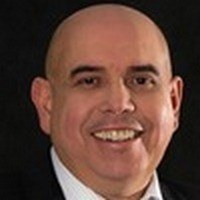
Mr Alexandre Barbosa is the Head of the Regional Center for Studies on the Development of the Information Society (Cetic.br), linked to the Brazilian Network Information Center (NIC.br). He is responsible for research projects to produce ICT-related data for the monitoring of national policies and international goals, such as the Sustainable Development Goals (SDGs). He coordinates capacity building programs in survey methodologies in Latin America and Portuguese-speaking countries in Africa. Mr Barbosa is a Member of Consultive Committee of the Brazilian Census (Brazilian Institute for Geography and Statistics) and member of the Board of Councelors of the Brazilian Center for Innovation in Education (CIEB). Chair of the Expert Group on ICT Households indicators (EGH) from the International Telecommunications Union (ITU) from 2012 to 2017, expert at the OECD working party on Measurement and Analysis of the Digital Economy and working party on Artificial Intelligence Governance.
Mr Barbosa holds a PhD degree in Business Administration from Getulio Vargas Foundation (Brazil), a Master Degree in Business Administration from Bradford University (UK), a MSc Degree in Computer Science from Federal University of Minas Gerais (Brazil) and a BSc Degree in Electrical Engineering from Catholic University (Brazil) and conducted postdoctoral research at HEC Montreal (Canada).
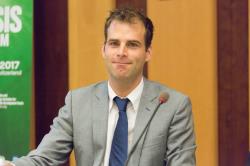
Dr Kees Baldé is a Senior Scientific Specialist at the Sustainable Cycles Programme hosted by the United Nations Institute for Training and Research. Kees is the initiator of the E-waste Monitor series, co-founder of the Global E-waste Statistics Partnership, author of various global, regional, national e-waste and battery studies, and manager of research projects. He is also a member of global expert groups on circular economy, waste, and sustainable development goals. He frequently provides policy advice to governments and is the chair of the board of the Dutch National (W)EEE Register and public speaker to television, media, scholars, and policy makers.
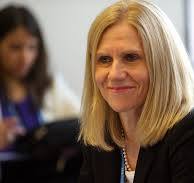
Ms Susan Teltscher is Head of the Capacity and Digital Skills Development Division of the International Telecommunication Union’s Telecommunication Development Bureau. In this context, she is responsible for ensuring the delivery of ICT-related capacity building activities and projects, with the objective to enhance knowledge and skills in the field of ICT, in particular in developing countries. This includes the direction and coordination of the ITU Academy and of the ITU Centers of Excellence network, working in partnership with Government, industry and academic institutions.
From 2008 to 2017, Dr Teltscher was Head of the ITU Statistics Division. In this position, she was responsible for the collection, harmonization, analysis and dissemination of ICT statistics worldwide, and for the production of analytical reports on global and regional trends in ICT, including the annual ITU Measuring the Information Society Report and the ICT Development Index.
Before joining ITU in July 2008, she was Chief of the ICT Policy and Analysis Unit, ICT and EBusiness Branch, of the United Nations Conference on Trade and Development, Geneva. Dr Teltscher received her Ph.D. in Economic Geography in 1992 from the University of Washington (Seattle, United States).
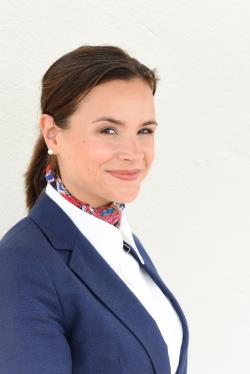
Dr. Mercedes Aramendía is the President of the Communications Services Regulatory Unit (URSEC) and the National Council of Innovation, Science and Technology (CONICYT) of Uruguay.
She holds a PhD in Legal Sciences from the University of Granada (with distinction cum laude), Spain; LLM in Law, Technology and Entrepreneurship from Cornell University Law School (Cornell Tech), United States; MBA from the EAE Business School, and Master in Business Management, Administration and Organization from the Camilo José Cela University, Spain; Lawyer and Master in Economic Administrative Law from the University of Montevideo, Uruguay.
She is a Professor and Director of the Postgraduate Course in Digital Transformation and Law at the University of Montevideo.
-
 C2. Information and communication infrastructure
C2. Information and communication infrastructure
-
 C4. Capacity building
C4. Capacity building
-
 C6. Enabling environment
C6. Enabling environment
-
 C7. ICT applications: benefits in all aspects of life — E-government
C7. ICT applications: benefits in all aspects of life — E-government
-
 C7. ICT applications: benefits in all aspects of life — E-business
C7. ICT applications: benefits in all aspects of life — E-business
-
 C7. ICT applications: benefits in all aspects of life — E-health
C7. ICT applications: benefits in all aspects of life — E-health
-
 C7. ICT applications: benefits in all aspects of life — E-employment
C7. ICT applications: benefits in all aspects of life — E-employment
-
 C11. International and regional cooperation
C11. International and regional cooperation
-
 Goal 4: Ensure inclusive and equitable quality education and promote lifelong learning opportunities for all
Goal 4: Ensure inclusive and equitable quality education and promote lifelong learning opportunities for all
-
 Goal 5: Achieve gender equality and empower all women and girls
Goal 5: Achieve gender equality and empower all women and girls
-
 Goal 8: Promote inclusive and sustainable economic growth, employment and decent work for all
Goal 8: Promote inclusive and sustainable economic growth, employment and decent work for all
-
 Goal 9: Build resilient infrastructure, promote sustainable industrialization and foster innovation
Goal 9: Build resilient infrastructure, promote sustainable industrialization and foster innovation
-
 Goal 13: Take urgent action to combat climate change and its impacts
Goal 13: Take urgent action to combat climate change and its impacts
-
 Goal 17: Revitalize the global partnership for sustainable development
Goal 17: Revitalize the global partnership for sustainable development
//1f8a81b9b0707b63-19211.webchannel-proxy.scarabresearch.com/en/ITU-D/Statistics/Pages/intlcoop/partnership/default.aspx